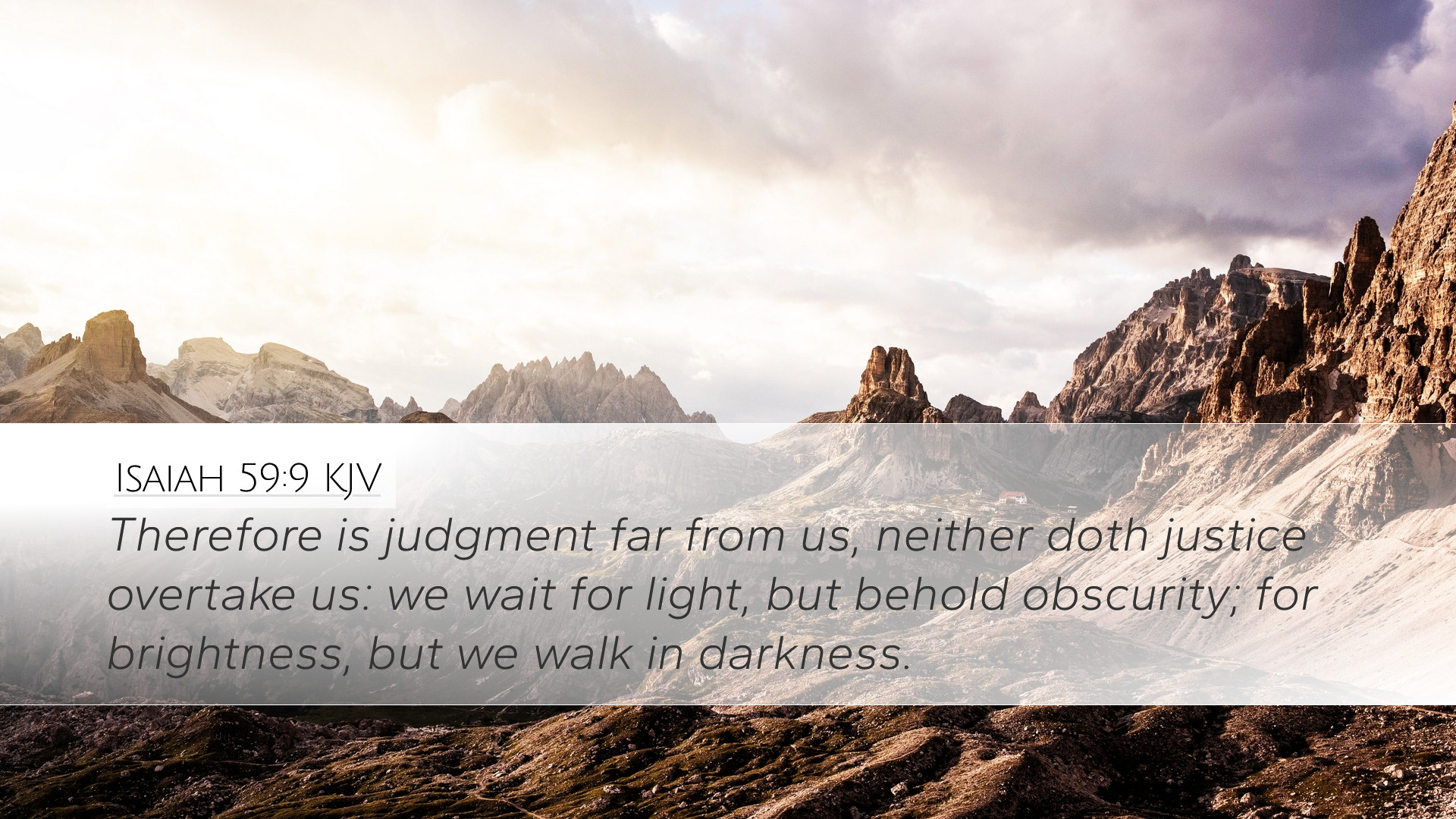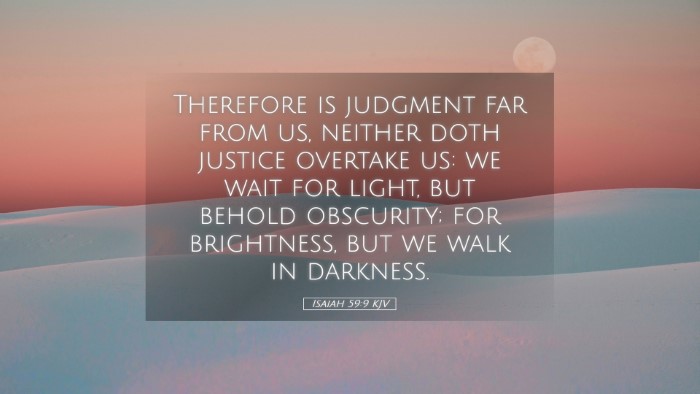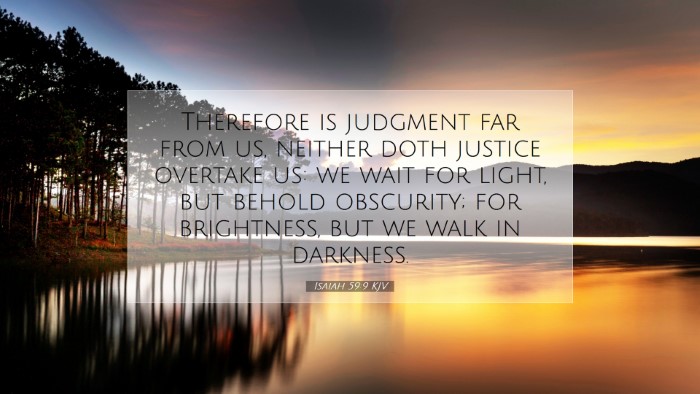Commentary on Isaiah 59:9
Isaiah 59:9 states: "Therefore is judgment far from us, neither doth justice overtake us: we wait for light, but behold obscurity; for brightness, but we walk in darkness." This verse captures the essence of Israel's lamentation regarding their spiritual condition and the apparent absence of divine justice and righteousness. As we explore insights from notable public domain commentaries, we glean profound theological implications relevant to pastors, students, and scholars alike.
Contextual Overview
The context of Isaiah's prophecy is essential for understanding this verse. The previous chapters depict a nation beset with sin, turning away from God, resulting in spiritual desolation. Matthew Henry elucidates that this chapter addresses the sins of Israel and the consequent separation from God, illustrating their moral and spiritual state as they face divine judgment.
Exegesis of Isaiah 59:9
The structure of verse 9 hinges on a series of contrasts—judgment and justice standing at a distance versus light and brightness that remain elusive. Albert Barnes elaborates on this dichotomy, noting that the people are acutely aware of the lack of justice in their society, feeling abandoned by divine oversight.
Judgment and Justice
Judgment is far from us: This phrase indicates a perceived delay or absence of God’s intervention in human affairs. Adam Clarke remarks that the people feel as if divine justice is perpetually postponed, which feeds into their spiritual despair.
Neither doth justice overtake us: The Israelites feel that their pleas for justice go unheard. Scholars indicate that this sentiment echoes throughout the book of Isaiah and is a cry that resonates with believers who seek divine justice in a tumultuous world.
The Search for Light
- We wait for light: This signifies a longing for guidance and clarity amid moral confusion. It highlights humanity's innate desire for hope and understanding in times of distress.
- Behold obscurity: This term conveys a sense of spiritual blindness and confusion. The darkness symbolizes the state of sin that blinds the hearts and minds of the people, making them unaware of their dire circumstances.
- For brightness, but we walk in darkness: This profound contrast illustrates the disillusionment felt by the Israelites. The expectation of divine illumination and insight is replaced with a heavy burden of darkness—spiritually and physically.
Theological Implications
The lamentation reflected in Isaiah 59:9 is indicative of broader theological realities. It speaks to the human condition, where individuals yearn for God's presence yet find themselves engulfed in sin and darkness. Pastors and theologians can leverage this insight to address the experiences of congregations who may feel similarly isolated from God’s grace.
Impact of Sin
Isaiah's declaration emphasizes the consequences of pervasive sin. Matthew Henry notes that sin creates barriers between God and His people, impeding their ability to experience His justice and light. The acknowledgment of sin is critical for both individual and corporate repentance.
The Need for Redemption
The absence of justice and light in this verse serves as a precursor to the need for redemption that is central to Christian theology. Adam Clarke posits that the darkness experienced is a foreshadowing of the ultimate need for the Messiah, who brings light to the world (John 1:5). This connection can serve as a bridge to New Testament teachings about the significance of Christ as the light of the world.
Pastoral Application
In pastoral practice, Isaiah 59:9 encourages a framework for addressing congregational despair and longing for justice. Here are several applications:
- Recognize the realities of sin: Pastors should lead discussions around the nature of sin and its impact on the community, invoking the themes present in Isaiah to bring awareness.
- Encourage lament: Just as the Israelites express their pain, congregations should feel safe to voice their struggles and frustrations before God.
- Point to the hope in Christ: Amidst spiritual darkness, the church should emphasize the hope found in Christ Jesus, the ultimate source of light and redemption.
- Promote justice: Inspired by the longing for justice evident in the verse, churches can advocate for social justice and equity, resonating with God’s character.
Conclusion
Isaiah 59:9 encapsulates a profound human experience mirrored in the search for justice and light. The insights drawn from Matthew Henry, Albert Barnes, and Adam Clarke remind contemporary believers of the importance of acknowledging sin, the deep longing for divine illumination, and the ultimate hope found in Christ. This verse serves as both a challenge and an invitation to seekers of truth—a call to recognize one’s spiritual state while simultaneously embracing the transformative power of the gospel.


